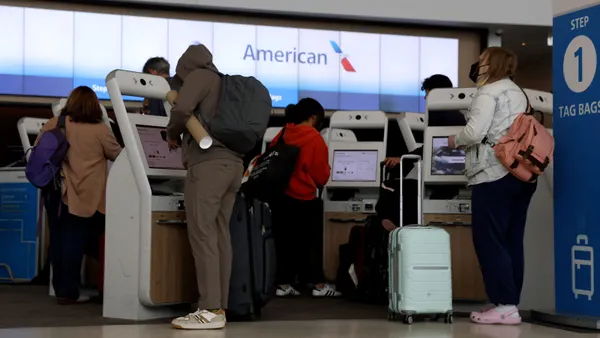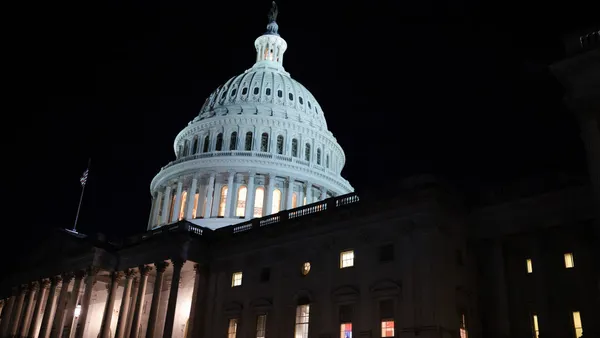Dive Brief:
-
In response to the novel coronavirus pandemic, 62% of organizations are implementing cost containment measures, according to a PwC survey of 50 U.S. and Mexico finance executives released Monday. The survey, conducted between March 9-11, inquired how companies were reacting to the COVID-19 outbreak, weighing the business and economic impacts in the weeks and months ahead.
-
Almost six in 10 finance executives expect a direct decrease in revenue or profits as a result of the outbreak, though 40% contend it's difficult to assess the impact as of now, according to PwC.
-
Weighing the impacts of COVID-19, 80% of finance executives list a potential global recession as one of their top-three concerns, according to the survey. Four in 10 executives are also concerned with workforce impacts and less productivity.
Dive Insight:
Uncertainty pervades businesses as organizations lean on remote work when possible to maintain operations. With recession alarms blaring, companies are trying to position their organizations for long-term performance as short-term interests tumble.
CEOs and boards are thinking less about 2020 earnings, but working to position companies for the coming years, said Tim Ryan, U.S. chair and senior partner, PwC U.S., speaking on a conference call Monday.
From a technology perspective, companies may need to pause long-term projects as part of cost containment measures. Amid a market contraction, focus would shift from capital-expenditure intensive projects. But slashing tech spending too much would hurt long-term.
Analyst firms are projecting a dip in the 2020 tech market, with growth slowing to 2% in 2020, according to Forrester. If a full-fledged recession hits and the U.S. and other major economies fail to recover, there is a 50% probability global tech markets will decline by 2% or more this year.
International Data Corporation also predicted clipped IT spending, projecting growth at 1% year-over-year in 2020, down from pre-pandemic projections of 4% growth.
Technology executives are tasked with maintaining business operations as seamlessly as possible. The pandemic is a "pressure test for the fitness of an IT organization," Jarod Greene, general manager of the TBM Council, told CIO Dive in a statement.
As revenue projections are reduced, the key effort for CIOs is to evaluate strategic cost optimization. "Having costs structured and modeled in a way that business stakeholders can understand ensures that the C-suite and board are mindful of the implications of their decisions," Greene said. If executives are confident in their spend, cost, performance and utilization data they can clearly shift and optimize resources where necessary.
While PwC did not ask questions related to tech spending, the professionals service firm's executives highlighted how digital technologies have allowed companies to maintain operations amid the global uncertainty.
If there is an opportunity, it's to put a technology strategy in play at scale, said Amity Millhiser, vice chair and chief clients officer, PwC U.S., speaking on a conference call Monday.
While businesses focus on enabling for continuity, companies will continue to keep looking at long-term spending, particularly as they interact with customers and enable safe and productive work, she said.
As technology investment becomes an issue for senior executives and boards, the CTOs at large and small organizations have become relevant in scenario planning around technology and moving at mass scale, said Neil Dhar, financial services industry leader at PwC U.S., while speaking on the call.














